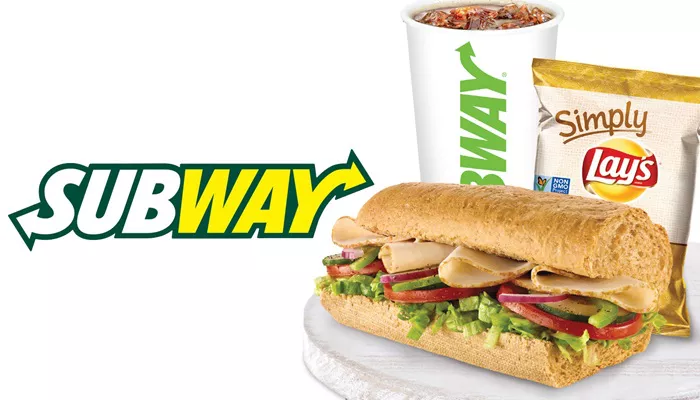Subway is a well-known fast-food chain that specializes in submarine sandwiches, salads, and other fresh offerings.
Founded in 1965, Subway has grown into one of the largest restaurant franchises in the world, with thousands of locations across numerous countries. The brand is recognized for its emphasis on fresh ingredients, customizable menu options, and a healthier alternative to traditional fast food.
Subway’s business model primarily revolves around franchising. This allows entrepreneurs to operate their own Subway locations using the brand’s established name and operational guidelines. This article explores the specifics of Subway’s franchising opportunities, including who can buy a franchise, the costs involved, and the reasons why Subway may not always be available for new franchises.
The Subway Franchise Model
What Is a Franchise?
A franchise is a legal and commercial relationship between the owner of a trademark, brand, or business model and an individual or group who wishes to use that identification in a business. In Subway’s case, franchisees get to operate a restaurant using Subway’s branding, recipes, and business practices.
Benefits of Owning a Subway Franchise
Brand Recognition: Subway is a globally recognized brand, which can attract customers.
Established Systems: Subway provides training and support to franchisees, which can help them run their businesses effectively.
Marketing Support: Franchisees benefit from national marketing campaigns that boost brand visibility.
Menu Flexibility: Franchisees can offer a wide range of sandwiches and salads, allowing them to cater to local tastes.
Who Can Buy A Subway Franchise?
Subway franchises are typically sold to individuals who meet certain criteria:
Financial Stability: Potential franchisees must demonstrate they have the financial resources to invest in the franchise.
This includes having liquid assets for initial investments and ongoing operations.
Business Experience: While prior experience in the food industry is beneficial, Subway also values general business experience. Successful franchisees often have skills in management, marketing, and customer service.
Commitment to Quality: Subway seeks franchisees who are committed to upholding the brand’s standards of quality and customer service.
Willingness to Learn: Subway offers comprehensive training programs. Franchisees should be open to learning and adapting to Subway’s operational systems.
Costs of Opening a Subway Franchise
Opening a Subway franchise involves several costs. Here’s a breakdown of what potential franchisees can expect:
Initial Franchise Fee: This fee typically ranges from $15,000 to $30,000. This grants the franchisee the right to operate under the Subway brand.
Startup Costs: Depending on the location and size of the franchise, initial startup costs can range from $100,000 to $500,000. This includes expenses for equipment, signage, and initial inventory.
Ongoing Fees: Franchisees must pay ongoing royalties to Subway, typically around 8% of gross sales. Additionally, there may be marketing fees that average around 4% of gross sales.
Operational Expenses: These include rent, utilities, employee wages, and other day-to-day costs.
The Franchising Process
Steps to Open a Subway Franchise
Application: Interested individuals must complete an application to express their interest in becoming a franchisee.
Disclosure Document: Subway will provide a Franchise Disclosure Document (FDD), which details the terms and conditions of the franchise agreement.
Review: Potential franchisees should review the FDD carefully and consider consulting with a legal or financial advisor.
Training: Once approved, franchisees must undergo a training program. This training covers operations, marketing, and customer service.
Location Selection: Franchisees can work with Subway’s team to select a suitable location. Subway often helps with site selection and analysis.
Opening: After training and setup, the franchisee can officially open their Subway location.
Reasons Why Subway May Not Be Selling Franchises
While Subway has many franchising opportunities, there are specific circumstances under which it may not be selling new franchises:
Market Saturation: In some areas, the market may be saturated with existing Subway locations. Subway aims to avoid overcrowding its brand in certain markets to maintain profitability for all franchisees.
Financial Constraints: If a potential franchisee does not meet the financial criteria set by Subway, they may be denied the opportunity to purchase a franchise.
Location Issues: If a suitable location cannot be identified, Subway may not move forward with selling a franchise in that area.
Brand Strategy: Subway may occasionally reassess its overall strategy, deciding to focus on consolidating existing locations rather than expanding.
Conclusion
Owning a Subway franchise can be a rewarding venture for individuals with the right skills and financial resources. The brand’s established reputation, robust support system, and commitment to fresh ingredients make it an attractive option for many aspiring entrepreneurs. However, potential franchisees must understand the financial commitments and be prepared for the franchising process.
Related topics:
- Is Chicago Pizza A Franchise?
- How Much Does It Cost to Open A Chicken Licken Franchise?
- Where Is Burger King Most Popular?

